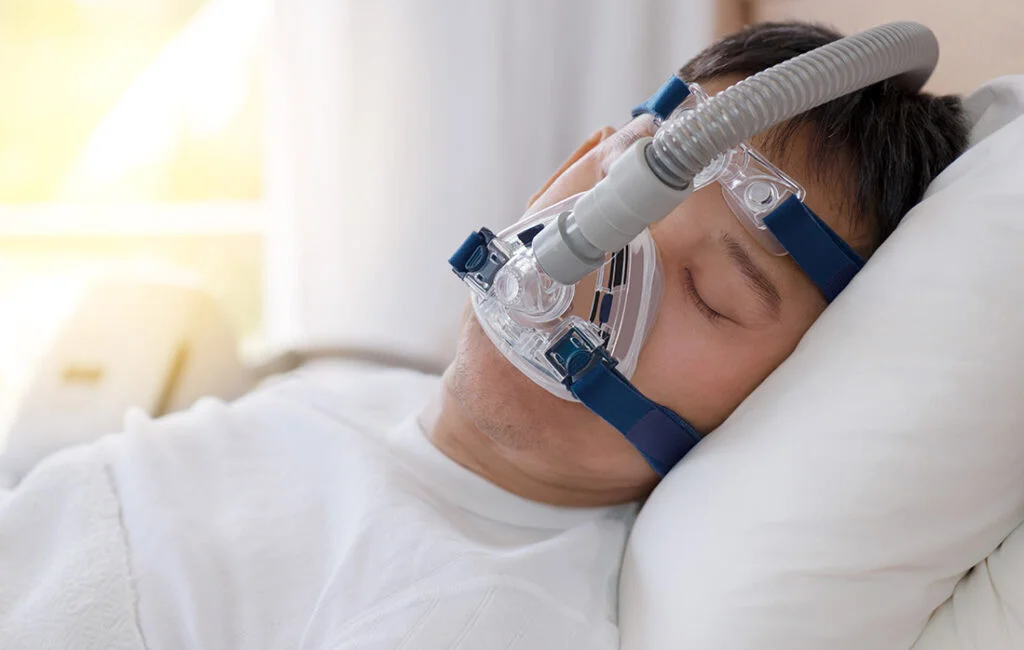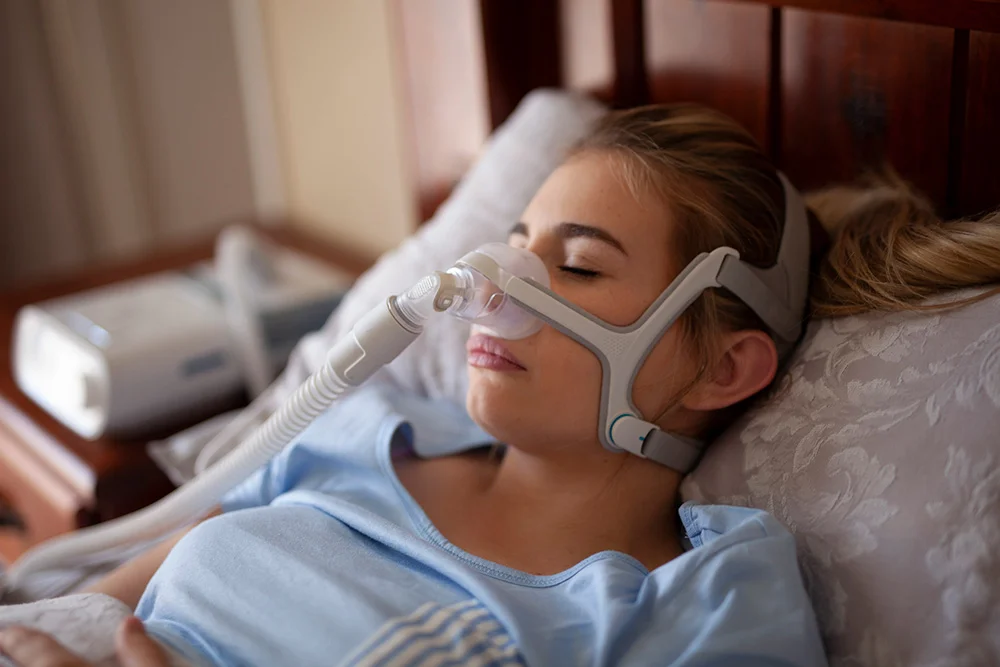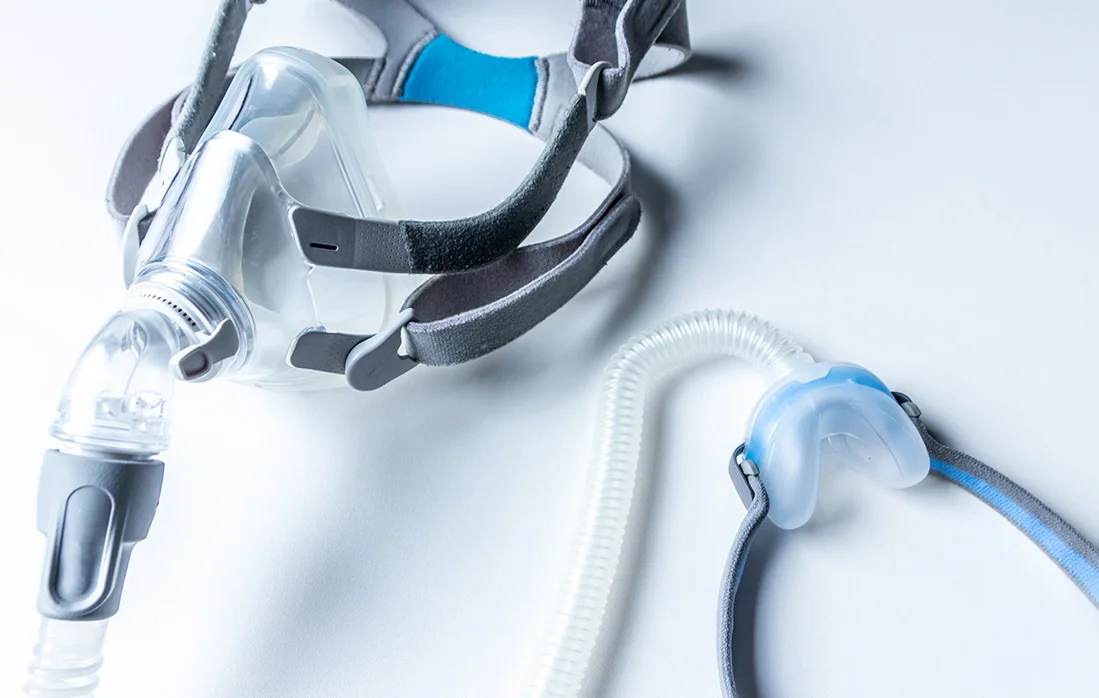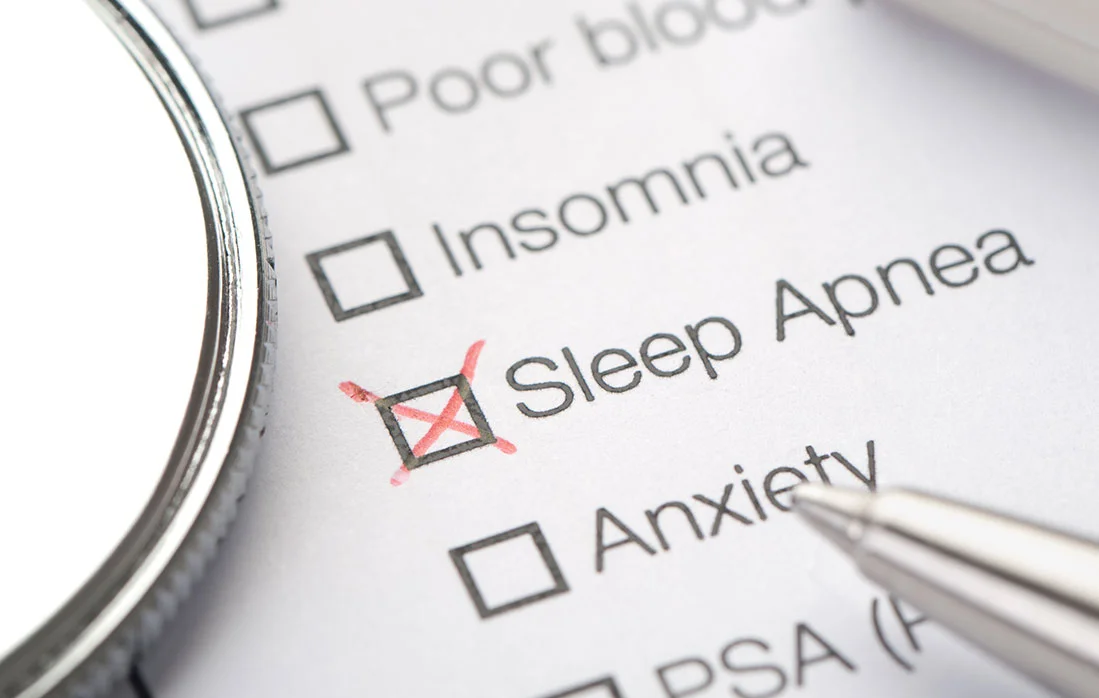
The last thing many people want to hear when they are starting a new treatment, especially one meant to improve both their sleep and quality of life, is that it might come with an unwanted side effect — weight changes.
The verdict is still out, our experts tell us, on whether CPAP machines cause weight gain, but CPAP users anecdotally share their experience gaining weight since beginning use, such as Stanardsville, Va. OSA (Obstructive Sleep Apnea) sufferer Karen Moore, also the founder of Pad-a-Cheek, which aims to make CPAP machines more comfortable. She says her machine is responsible for a 15-pound weight gain, pointing to a potential explanation for her that once the CPAP was working and she was burning fewer calories at night moving around with periodic limb movements, it may have impacted her weight in her opinion.
But she also points to the irony that sleeping better leads to better food decisions. “The fact that you’re always kind of dragging, you crave sweets to boost your energy,” she says, of those pre-CPAP times when she wasn’t sleeping well. “Oh, a candy bar would be really good right now right? I might get through this with a candy bar — you tend to lean towards higher calorie foods.”
Here’s what experts know, and still don’t know, about the relationship between weight gain and CPAP use.
When the Research Can’t Decide…
This dilemma is one the research itself points to, with contradictory findings depending on the study. In the 2020 Journal of Clinical Sleep Medicine’s research titled “Up, down, or no change: weight gain as an unwanted side effect of CPAP for obstructive sleep apnea,” they conclude “it appears that CPAP treatment of OSA most frequently causes an increase in body weight.”
There is a lot of conflicting information on whether CPAP machines cause weight gain, due in part to how the research was done,” says Dr. Monique May, MD, MHA Family Medicine and Medical Advisor for Aeroflow Sleep. “For example, some studies may have had problems with either how the research study was done, while some may not have enough study participants to be considered significant. These differences can yield results that show weight loss in CPAP users, while other results show weight gain.”
For example, she explains that one study showed an 0.88-pound weight gain after three months on CPAP, while another study showed a weight gain of up to 11 pounds. The study periods ranged from four weeks to three months.
The Reasons Behind Weight Changes and CPAP
If all is going well with your CPAP treatment, you are likely getting longer and better sleep with fewer night wakings. So how does this impact your appetite, energy, metabolism, and other factors that undoubtedly impact weight?
“Ideally, using CPAP correctly should lead to improved sleep, which may give people with obstructive sleep apnea more energy to exercise, which of course can lead to weight loss,” May says. “CPAP can also help improve underlying medical conditions such as high blood pressure, certain heart conditions, and diabetes. However, CPAP can cause changes in hormones that affect hunger and may increase appetite, but more research is needed to determine the exact cause and effect.”

Mitchell Levine, DMD, President of the American Academy of Dental Sleep Medicine, explains that the question is related to Basal Metabolic Rate (BMR) which is the number of calories you burn while at rest.
“There is some evidence that suggests CPAP therapy reduces BMR,” he says. “Simply put, patients burn fewer calories when using a CPAP machine. But this doesn’t mean everyone using a CPAP will gain weight. Research shows CPAP was only responsible for 13% of BMR variability, meaning other factors play a much greater role.”
Like with all things weight related, it’s hard to isolate specific factors or reasons, as it can be a combination of many issues, including poor diet, the same study showed.
Weight and OSA: A Complicated Relationship
One of the major risk factors for developing OSA in the first place is being obese or overweight. For example, a recent report on Obstructive Sleep Apnea from the American Academy of Sleep Medicine showed that even a 10 percent increase in weight resulted in a 6-fold increased risk of developing OSA. But, Levine says it’s unfair to link effective treatment options to weight concerns directly.
“Because weight gain and obesity are linked to obstructive sleep apnea (OSA), many people think that these health conditions cause OSA. And because CPAP is commonly prescribed for OSA, a connection between CPAP and weight is often assumed,” he says. “But, it is inaccurate to suggest the treatment for sleep apnea is responsible for promoting the disease.” This is because treating sleep apnea improves sleep, often resulting in more energy to exercise and make better dietary decisions, which can help manage any potential weight gain, he adds.
Given this, doctors don’t always bring up potential weight changes in their treatment planning with patients. “Some physicians might warn of these risks, while others may shy away from the discussion. A candid explanation is appropriate if it is within a discussion on the benefits of treatment,” he says. May also says it’s not something doctors typically bring up with patients as it’s not always a common side effect.
But when it does happen, it’s essential for providers to address it and other related medical conditions that might impact weight, May says. “Gaining more weight may be detrimental both physically and mentally for people already struggling with their weight. Encouraging patients to continue lifestyle changes such as eating fewer calories (especially empty calories from processed foods) and exercising more is still recommended.”
What to Do if You are Struggling With Weight Gain and CPAP Treatment
First, like any side effect, don’t deal with it on your own in silence. In spite of the potential emotions that might come with additional weight gain, reach out to your provider as soon as possible to discuss the issue.
They might give you the advice our experts do, below, or make another plan:
- Keep track: Patients should track their weight and keep a food diary for at least two weeks after starting CPAP. If it appears that the weight gain is indeed new, and everything else has remained the same (such as their eating habits and level of exercise), then they need to discuss these changes with their physician to make sure there are no other issues. Over time the weight gain may stabilize, so tracking trends and patterns is very important, May says.
- Consider alternatives: Consider a conversation about oral appliance therapy instead (OAT) which don’t share the same weight gain implications as CPAP, Levine says. “Patients with sleep apnea tend to prefer oral appliances and appear to be more compliant with OAT. It is important that patient preference be considered when therapy for obstructive sleep apnea (OSA) is prescribed.”
- Prioritize overall health: Spend time and energy improving your health and diet, May recommends. “Patients should control as many things about their health as they can. If they also have diabetes, high blood pressure, or high cholesterol, they should work with their doctor and possibly a dietician to make sure they are eating as healthy of a diet as they have access to, such as a plant-based, whole food, no-processed-foods diet.”
Finally, remember there’s a risk/reward consideration with any treatment, and given just how important breathing during sleep is to overall health and well being, it might be a potential side effect patients should consider overlooking for the benefits.
Levine says, “Some patients experience weight gain but the benefit of treating sleep apnea is generally much greater than the limitations of any single aspect of the care.”

If We Want People to Use Their CPAP Machines, They Need to Be Easier to Use: Opinion

Everything You Need to Know About CPAP Devices

A Nasal Spray Sleep Apnea Treatment Shows Promise in New Study

3 Sleep Tips to Create the Perfect Bedtime Routine, According to Jennifer Aniston
Sources
Brown LK. Up, down, or no change: weight gain as an unwanted side effect of CPAP for obstructive sleep apnea. J Clin Sleep Med. 2020;16(suppl_1):21S–22S.
Moore, Karen. Personal interview. April 2024.
Indira Gurubhagavatula, MD, MPH, Cristina Baldassari, MD, Aneesa Das, MD,
Michael A. Edwards, MD, FACS, Monica Mallampalli, Ph.D, Diego R. Mazzotti, Ph.D
Imran Patel, DMD, Freda Patterson, Ph.D, John Park, MD. Obstructive Sleep Apnea
Indicator Report. https://sleepeducation.org/wp-content/uploads/2023/03/obstructive-sleep-apnea-indicator-report.pdf. March 2024.Levine, Dr. Mitchell. Personal interview. April 2024.
May, Dr. Monique. Personal interview. April 2024.

























